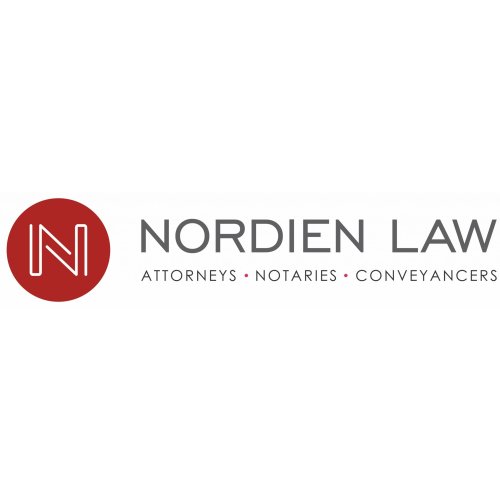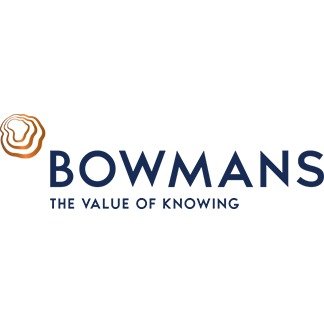Best Funds & Asset Management Lawyers in Cape Town
Share your needs with us, get contacted by law firms.
Free. Takes 2 min.
List of the best lawyers in Cape Town, South Africa
About Funds & Asset Management Law in Cape Town, South Africa
Funds and asset management law in Cape Town refers to the legal framework that governs the collection, pooling, investment, and management of assets and investment funds within the city and the broader South African context. Cape Town, as a major business and financial hub, hosts numerous fund managers, collective investment schemes, and institutional investors. Asset management spans a variety of asset classes, including equities, bonds, real estate, and alternative investments. The laws regulating these activities are designed to protect investors, ensure stability in financial markets, and foster transparent and compliant management of funds.
Why You May Need a Lawyer
Navigating the complexities of funds and asset management can be challenging without legal support, especially given the strict regulatory environment. You may need a lawyer in the following situations:
- Setting up or structuring a new investment fund or asset management company
- Drafting or reviewing fund documentation, such as prospectuses, trust deeds, or management agreements
- Ensuring compliance with local regulations and licensing requirements
- Managing disputes between investors and fund managers
- Dealing with regulatory investigations or enforcement actions
- Advising on corporate governance, due diligence, or fiduciary duties
- Mergers, acquisitions, or restructuring of asset management entities
- Understanding tax implications of different fund structures
- Protecting your interests as an investor, asset manager, or trustee
Legal advice can prevent costly mistakes and help you remain compliant with evolving laws.
Local Laws Overview
Funds and asset management in Cape Town are primarily governed by national legislation, with additional oversight from local and regional authorities as necessary. Key aspects include:
- The Financial Sector Regulation Act, 2017 - sets out the regulatory framework for financial institutions
- The Collective Investment Schemes Control Act, 2002 (CISCA) - regulates collective investment schemes such as mutual funds and unit trusts
- The Financial Intelligence Centre Act, 2001 (FICA) - establishes requirements for anti-money laundering and counter-financing of terrorism measures
- Regulation and licensing by the Financial Sector Conduct Authority (FSCA) - the main regulator of both funds and asset managers
- Protection of investor interests via strict rules on disclosures, transparency, and fiduciary duties
- Requirements for financial reporting, auditing, and risk management
- Obligations around fair marketing, advertising, and offering of collective investment products
- Guidelines for the custody and safekeeping of assets
Local nuances may also arise from municipal bylaws, but the main considerations are set at the national level.
Frequently Asked Questions
What is a collective investment scheme?
A collective investment scheme is a pooled investment vehicle, like a unit trust or mutual fund, where multiple investors' money is managed as a single fund by a professional manager according to agreed rules and regulations.
Who regulates funds and asset managers in Cape Town?
The Financial Sector Conduct Authority (FSCA) is the main regulatory body overseeing funds and asset managers in Cape Town and throughout South Africa.
Can foreign investors participate in South African funds?
Yes, foreign investors are generally allowed to participate in South African funds, subject to exchange control regulations and compliance requirements.
What licensing is needed to operate an asset management company?
You must obtain a license from the FSCA, comply with strict fit and proper requirements, and adhere to ongoing compliance and reporting duties.
What are typical legal risks in fund management?
Risks include regulatory non-compliance, litigation from investors, mismanagement of assets, conflicts of interest, and failing to meet disclosure obligations.
What disclosures must be made to investors?
Legal requirements involve clear disclosure on investment objectives, fees, risks, historic performance, and the fund manager's credentials and conflicts of interest.
How are disputes between investors and fund managers handled?
Disputes are typically resolved through internal complaints procedures, but can escalate to arbitration, mediation, or litigation in civil courts.
What legal duties does an asset manager owe to investors?
Asset managers owe fiduciary duties, requiring them to act in the investors' best interests, maintain transparency, and manage conflicts of interest appropriately.
How is investor money protected?
Funds must comply with safekeeping, segregation, and custodial requirements. Independent trustees or custodians are often appointed to safeguard assets.
Are there restrictions on advertising or marketing funds?
Yes, strict rules govern what can be advertised. All marketing must be factual, not misleading or deceptive, and should comply with the relevant advertising codes and laws.
Additional Resources
If you need more information or support, the following resources can be valuable:
- Financial Sector Conduct Authority (FSCA) - Regulator for non-banking financial institutions
- South African Reserve Bank - For exchange control and monetary policy issues
- Financial Intelligence Centre - For anti-money laundering guidance and compliance
- South African Revenue Service (SARS) - For tax guidance on fund and asset management structures
- Law Society of South Africa - For finding qualified legal professionals in Cape Town
- Association for Savings and Investment South Africa (ASISA) - Industry body for asset managers and investment firms
Next Steps
If you require legal assistance with funds and asset management in Cape Town, consider the following steps:
- Clearly identify your legal issue or the service you require - for example, fund formation, regulatory compliance, dispute resolution, or investor protection
- Gather all relevant documents, including contracts, correspondence, regulatory filings, and marketing materials
- Research and approach law firms or attorneys specializing in financial services or funds and asset management
- Arrange a consultation to discuss your needs, possible solutions, and associated costs
- Stay informed about changes in local laws that may affect your asset management activities
Legal proceedings and compliance issues in funds and asset management can be intricate. Consulting with an experienced lawyer in Cape Town is the best way to protect your interests and ensure all actions are fully compliant with South African law.
Lawzana helps you find the best lawyers and law firms in Cape Town through a curated and pre-screened list of qualified legal professionals. Our platform offers rankings and detailed profiles of attorneys and law firms, allowing you to compare based on practice areas, including Funds & Asset Management, experience, and client feedback.
Each profile includes a description of the firm's areas of practice, client reviews, team members and partners, year of establishment, spoken languages, office locations, contact information, social media presence, and any published articles or resources. Most firms on our platform speak English and are experienced in both local and international legal matters.
Get a quote from top-rated law firms in Cape Town, South Africa — quickly, securely, and without unnecessary hassle.
Disclaimer:
The information provided on this page is for general informational purposes only and does not constitute legal advice. While we strive to ensure the accuracy and relevance of the content, legal information may change over time, and interpretations of the law can vary. You should always consult with a qualified legal professional for advice specific to your situation.
We disclaim all liability for actions taken or not taken based on the content of this page. If you believe any information is incorrect or outdated, please contact us, and we will review and update it where appropriate.















